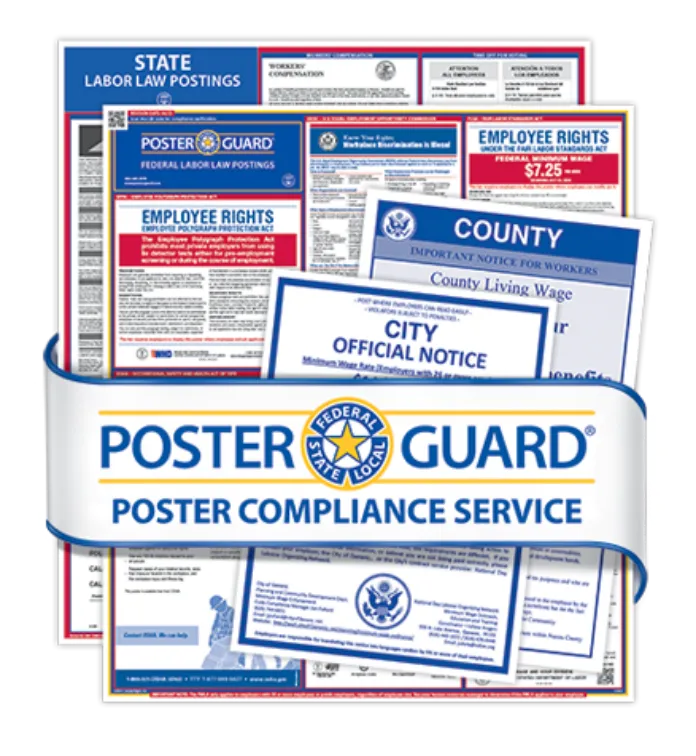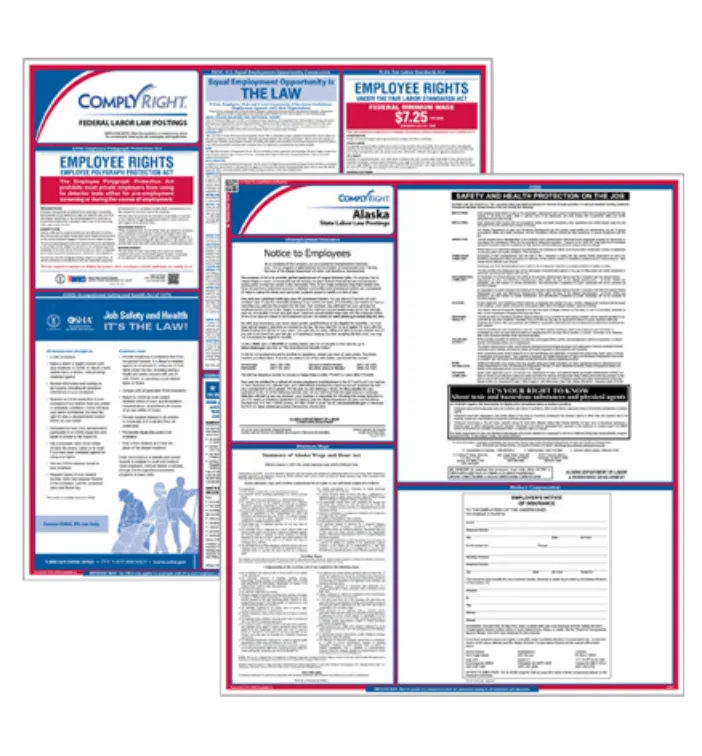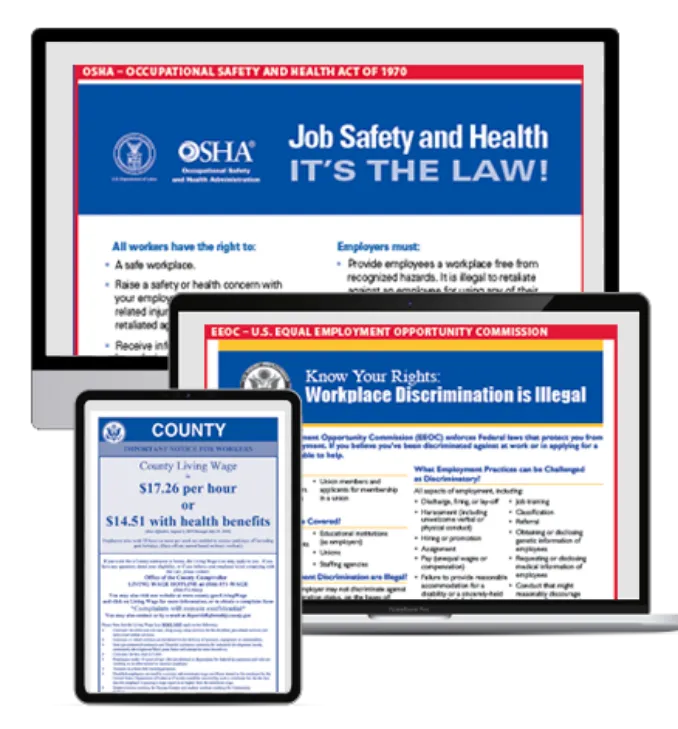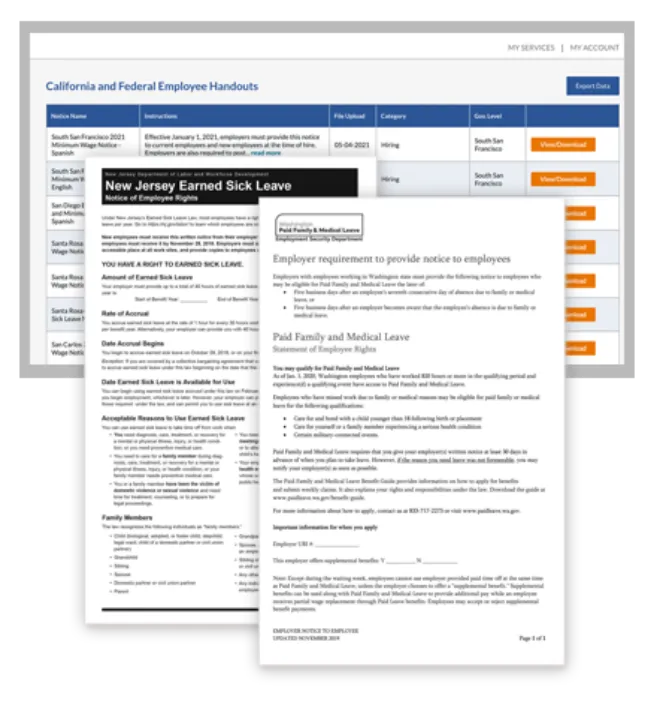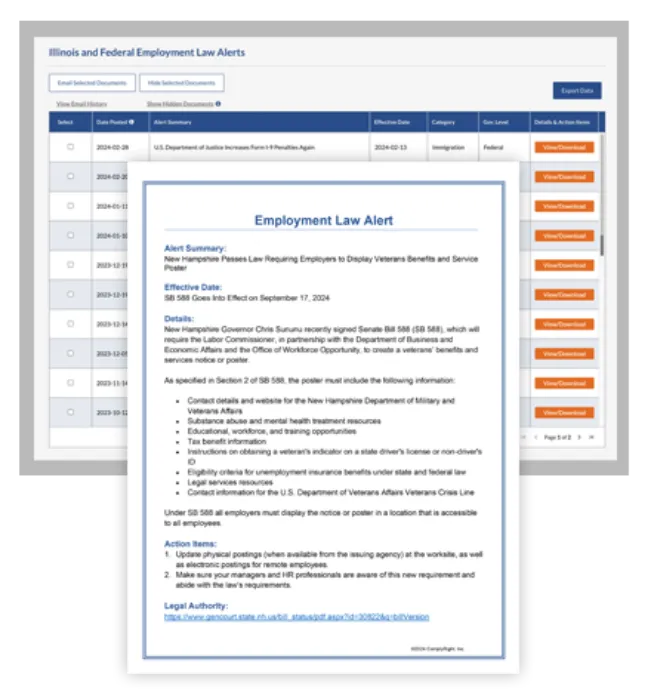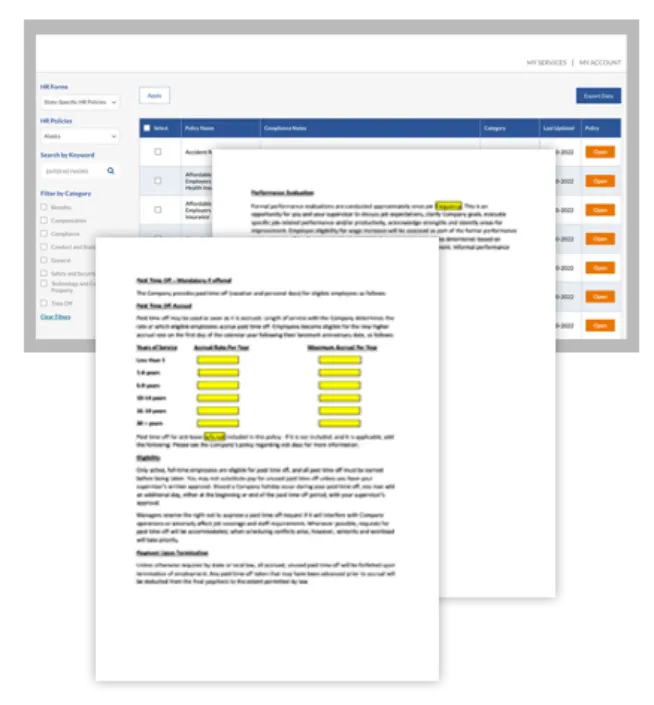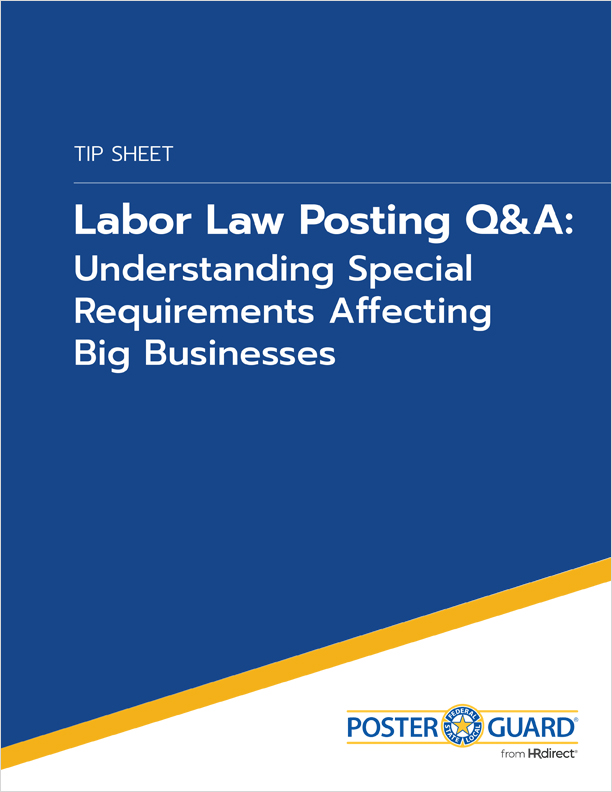Navigating state, county, and city-level regulations adds complexity to posting compliance. While federal posting requirements are minimal, many states now require multiple postings — and the pace of legislative change is accelerating. Staying current is more crucial than ever.
In this post, we’ll cover the five states with the most significant updates, what these changes mean for employers, and how to stay compliant as laws evolve.
States with the Most Legislative Activity in the Past Year
While not an exhaustive list, these key updates may impact your compliance responsibilities in the following states:
California
Effective January 1, 2025, nearly 40 California counties and cities have higher minimum wage rates than the state’s $16.50/hr. These include Alameda, Berkeley, Los Angeles, Malibu, Oakland, San Francisco, Santa Monica and others. (Also, some cities have different rates for large and small employers.)
Other important updates in California as of January 1, 2025:
- California Fair Employment Poster: Employers must update their posters to include new anti-discrimination protections based on combinations of two or more characteristics, such as sex and race, or sexual orientation and national origin.
- Whistleblower and Workers Compensation Poster: A new poster listing employees’ rights and responsibilities related to whistleblower laws must be displayed.
As more states, counties and cities enact their own regulations, employers face increasing compliance challenges. Poster Guard® Poster Compliance Service helps you stay current and fully covered.
New York
The minimum wage has increased to $16.50/hr. for New York City, Long Island, and Westchester County, while the rest of the state remains at $15.50/hr. Additionally:
- Employers must provide electronic copies of all labor law postings
- New salary transparency laws continue to impact employers
- Nursing employees now have expanded protections, and paid family leave has updated its definition of "family member" to include siblings.
Illinois
Several new postings are effective January 1, 2025, beyond the minimum wage increase to $15.00/hr.:
- Captive Audience Poster: Employers must display this poster regarding holding mandatory political or union-related meetings
- Equal Pay Act Poster: Employers must display this poster to ensure pay equity transparency
- E-Verify Poster: Employers using E-Verify must display a poster about employment eligibility verification
Maine
Maine’s state minimum wage has increased to $14.65/hr., with Portland and Rockland increasing their rates to $15.50/hr. Additional updates:
- Paid Family and Medical Leave Poster: Reflects the finalized rules for the Paid Family and Medical Leave Program, effective May 2026
- Veterans Benefits and Services Poster: Employers must post information about available veteran resources, including workforce training and legal services
Massachusetts
Key updates in Massachusetts for 2025:
- Veterans Benefits Poster: Employers must display the updated poster detailing veterans' benefits and services
- Earned Sick Time Poster: The updated poster reflects expanded sick time coverage under new legislation
- Paid Family Leave Poster: Now includes details on increased benefits and other changes to the paid family leave law
Legislative Activity in Leading States Eventually Impacts Others
If your business operates in any of these states, it’s crucial to stay informed about new laws expanding employee protections, as these changes could increase employer liability. Even if you don’t operate in these states, similar legislation may be coming to yours. Emerging laws often set trends nationwide — New York’s electronic posting requirements, for example, could be adopted by other states. Watch for changes in paid leave, pay transparency and anti-discrimination laws.
Additionally, more states, like Maine and Rhode Island, are mandating veteran postings — a trend that is expected to grow.
Achieve Multi-Level Posting Compliance, No Matter Your State
If staying on top of posting requirements feels overwhelming, we can help! With Poster Guard® Poster Compliance Service, you’ll receive an up-to-date set of federal, state and local posters, with automatic replacements every time a mandatory change occurs. Plus, you’ll be protected from government fines with a 100% compliance guarantee.

